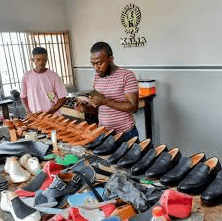In today’s fast-evolving world, academic education alone is no longer enough to guarantee a successful future for young people. Equipping kids with practical skills early on has become increasingly important, especially in Nigeria, where the job market is highly competitive and unemployment is a significant challenge. Teaching kids useful skills alongside their formal education not only prepares them for independence but also fosters a mindset of innovation, creativity, and resilience. Here’s a look at why skill acquisition is essential for Nigerian children and how it can shape their future.



1. Enhancing Independence and Problem-Solving Abilities
Acquiring skills like sewing, coding, baking, or even basic electrical repairs can empower children to become self-reliant. When kids learn these skills, they gain the confidence to tackle real-world problems and navigate challenges independently. In Nigeria, where resources may be limited, this independence is invaluable. Kids who can solve problems and rely on themselves will be better prepared for adulthood and are more likely to become proactive and resourceful members of society.
2. Boosting Employability and Reducing Unemployment
In Nigeria’s competitive job market, possessing unique skills can significantly enhance a young person’s employability. Employers often value candidates with practical experience and hands-on knowledge over those with only theoretical knowledge. Kids who acquire skills early have a head start in building their resumes with meaningful experiences, making them more attractive to potential employers. Moreover, skilled individuals have the opportunity to create jobs for themselves and others, helping to reduce unemployment in the long run.
3. Encouraging Entrepreneurship and Financial Independence
Teaching kids skills such as graphic design, carpentry, or even digital marketing can lay a foundation for entrepreneurship. These skills can be turned into profitable ventures, allowing children to earn while still in school or soon after graduating. In Nigeria, where entrepreneurship is a growing trend, this early exposure can inspire kids to think about innovative business ideas and financial independence. By starting young, they can develop a business mindset that could lead them to create successful enterprises, thereby contributing to the economy.
4. Building Confidence and Self-Esteem
Mastering a skill gives children a sense of accomplishment and boosts their confidence. This is particularly beneficial in Nigeria, where many young people may lack self-esteem due to societal pressures and limited opportunities. When kids can proudly demonstrate a skill, whether it’s designing websites, cooking, or painting, they feel a sense of worth and purpose. This confidence can spill over into other areas of life, encouraging them to aim higher in their academic and personal pursuits.
5. Fostering a Culture of Creativity and Innovation
Learning skills nurtures creativity and encourages kids to think outside the box. Skills like coding, music, and arts cultivate a mindset of exploration and experimentation, which is essential for innovation. In a country like Nigeria, where the economy needs diversification and new solutions, encouraging kids to be creative problem-solvers is vital. By acquiring skills, kids are better equipped to think critically and develop innovative ideas that can address local and global challenges.
Conclusion
Equipping Nigerian children with practical skills from a young age is an investment in their future and in the nation’s development. These skills do more than make children employable—they foster independence, build confidence, and encourage entrepreneurship and innovation. As parents, educators, and society as a whole, it’s essential to support and create avenues for skill acquisition. By doing so, we empower the next generation to become self-reliant, successful, and creative problem-solvers who can drive positive change in Nigeria.

